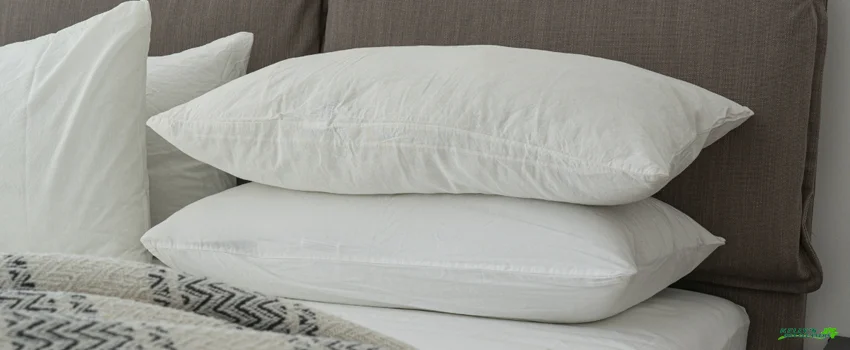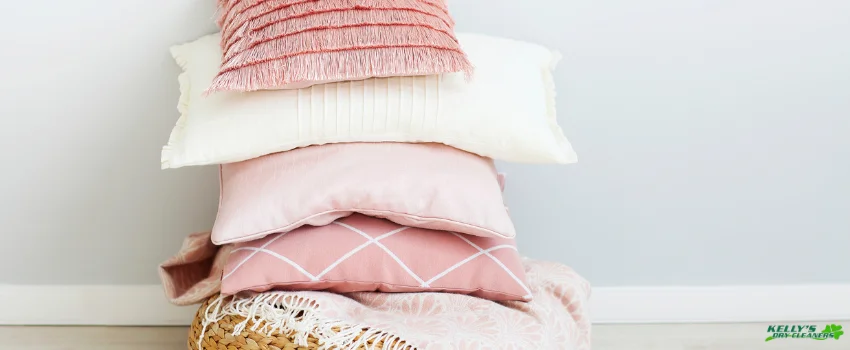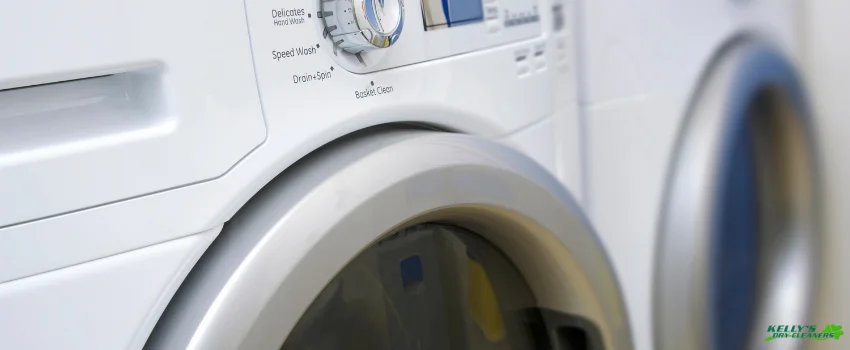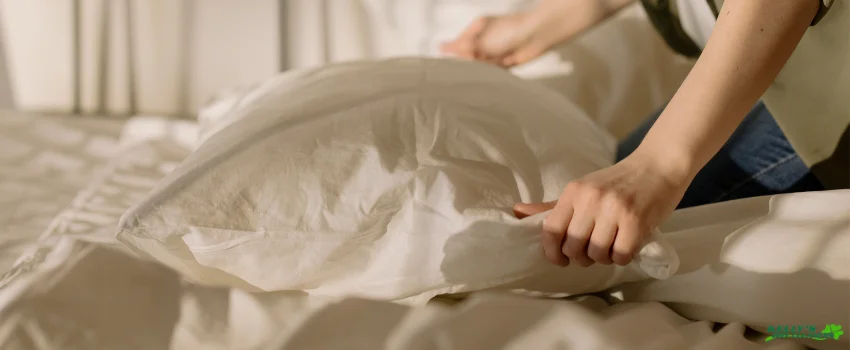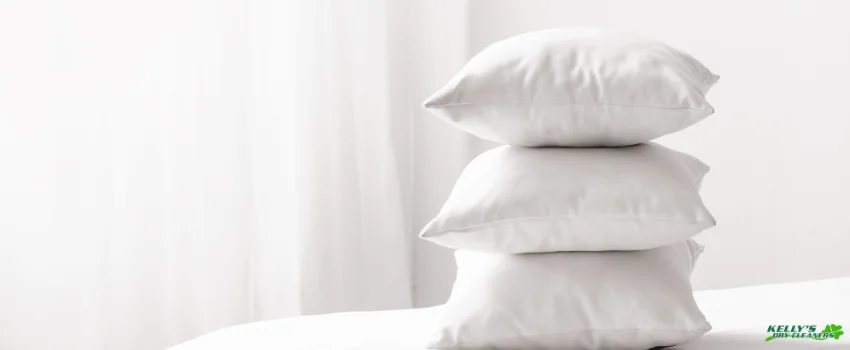Most of us spend a significant portion of our lives sleeping, so it’s no surprise that we want to make our sleeping environment as comfortable and clean as possible. We spend countless hours cleaning our mattresses and sheets, but what about our pillows?
Despite being an integral part of our sleep experience, pillows are often overlooked, especially when it comes to cleaning. What we may not realize is that they can quickly accumulate dead skin cells, dust mites, and bacteria, making them a potential hotbed of germs and allergens.
That’s why washing your pillows should be an essential part of your bedding maintenance routine. To ensure you get the best possible sleep, we’ve put together this comprehensive guide that covers everything you need to know to keep your pillows fresh and clean.
What is the best way to wash a pillow?
Pillows come in all shapes and sizes, and there’s no one-size-fits-all approach to cleaning them. So, it’s crucial to understand the different types of pillows to ensure that they are properly and thoroughly cleaned:
1. Down and Feather Pillows
Down pillows require special care. Often, it’s recommended to have them professionally cleaned. But, if you choose to clean them at home, use a mild detergent and a delicate cycle on your washing machine. Make sure to fluff them when drying to distribute the filling or feathers evenly.
2. Synthetic Pillows
Synthetic pillows are typically easier to clean, as they can withstand machine washing and drying. When cleaning synthetic pillows, use a mild detergent and a warm water cycle, and tumble dry on low heat.
3. Memory Foam Pillows
These pillows should never be machine washed or dried, as they can easily lose their shape and support. Instead, spot clean any stains with a mild detergent and warm water, and air dry.
4. Latex Pillows
While latex pillows can be machine washed, they are sensitive to strong cycles and chemicals. To protect the latex, avoid using bleach or fabric softeners when washing. It’s also advisable to air dry latex pillows instead of putting them in the dryer.
How To Wash a Pillow
The key to cleaning pillows is to be gentle and avoid using harsh chemicals or overly hot water. Whether you choose to hand-wash your pillows or use a washing machine, following these general steps can guarantee fresh and clean pillows that are ready for a good night’s sleep:
1. Hand-Washing
Hand-washing pillows is an excellent option for those who want to clean their pillows gently without damaging the fabric or filling. To hand wash pillows, you should start by filling a sink or bathtub with warm water and adding a small amount of mild detergent.
Gently agitate the water to create suds, then submerge the pillows and press down gently to work the soap into the fabric. Rinse them thoroughly with clean water, then squeeze out as much water as possible before hanging them up to air dry.
2. Washing Pillows in Washer
If you prefer to use a washing machine to clean your pillows, keep in mind to choose the right settings to avoid damaging the fabric or filling. Start by checking the care label on your pillow to determine the appropriate water temperature and cycle.
For most pillows, a warm or hot cycle is best, and it’s a good idea to add an extra rinse cycle to ensure that all the soap is removed. Avoid using too much detergent or fabric softener, as this can leave a residue on the fabric and reduce the fluffiness of the filling.
Helpful Tips for Washing Pillows
Keeping your pillows fresh and clean is an integral part of maintaining a clean and healthy sleeping environment, but it can be a daunting task if you’re unsure of how to go about it. Here are some helpful tips to ensure that you are cleaning your pillows correctly and efficiently:
1. Air out your pillows.
Before washing your pillows, remove any covers or pillowcases and allow them to air out for a few hours. This step helps freshen up and remove unpleasant odors from your pillows.
2. Wash your pillows gently.
Check the care label on your pillows to ensure they are machine washable. Most pillows are machine washable, but some may require hand washing or dry cleaning. Adding a bit of baking soda to the wash cycle can also help eliminate odors. To balance the load in your washer, wash two pillows at a time.
3. Dry your pillows completely.
Ensure that your pillows are thoroughly dry before using them again to avoid mold and mildew formation. You can air-dry them in the sun or put them in the dryer under a low-heat setting.
4. Call for professional dry cleaners.
If your pillows are not machine washable or you’re unsure how to wash them properly, it’s best to call for professional dry cleaning services. They have the expertise and equipment to safely clean your pillows without causing any damage.
How often should you wash your pillow?
Pillows are a magnet to harmful elements that can lead to a range of health issues, including allergies, asthma, and even infections. By washing pillows regularly, you can eliminate these allergens and create a healthier sleeping environment.
The general guideline is to wash pillows at least twice a year, but this can vary depending on many factors. You may need to wash your pillows more often when:
- you have allergies or asthma;
- you sweat heavily; or
- you have young children who sleep with you;
Other factors that can influence how often you need to wash your pillows include the type of pillow you have, the quality of the materials, and how well you maintain them.
The Bottom Line
Washing your pillows may take additional effort, but a little extra care can go a long way. Keeping your pillows clean not only eliminates unpleasant odors and allergens but also extends their life span, ensuring that they continue to provide you with the comfort and support you need for a restful sleep.
Freshen up your bedding and pillows by calling Kelly’s Dry Cleaners.
Don’t settle for mediocre cleaning when it comes to your bedding and garments. Call for professional dry cleaners in Durango, CO, to give your pillows the utmost cleaning and care. At Kelly’s Dry Cleaners, our experienced team is knowledgeable about different fabrics and laundry tags, so you can trust that your pillows will be properly and thoroughly cleaned.

